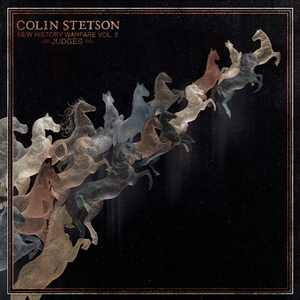Like the PC Brigade or the Feminazis, the “purists” are one of those vague groupings pejoratively, often lazily cited by music journalists as liable to be “up in arms” at some new release with supposedly provocatively eclectic leanings. After so many decades of multiple crossovers, fusions, genre-bending, does anyone really still cling to a notion of
the Pure any more? Do the “purists” still have bi-monthly meetings, their numbers increasingly dwindled, wearing black, pointy hats and arguing for a return to the days of genre apartheid?
Well, maybe not when it comes to the “lower” forms, those cheap pimps and harlots rock, dance, electronica, pop, that have intermingled and cross-bred so intensively as to be mongrel beyond recognition. However, when it comes to classical and jazz, purism does still prevail. And the thing is, this insistence on purism doesn’t just come from a dedicated committee of hardcore preservationists; it lingers, dare I say, in us all. Efforts, for example, to find common ground between classical and contemporary DJ culture (such as Gabriel Prokoviev’s Nonclassical label and club night) are met with a general sense of the deepest unease, even among the supposedly sophisticated ranks of the non-purist. Similar with jazz. So deep-seated is the notion that jazz must be jazz that it’s only
recently, for example, that the taboo regarding electronics in the music has eased, and only then on its experimental margins.
The latest album by Michigan-born, Montreal based saxophonist Colin Stetson will be problematic for some. Is this jazz? Is this for real? Is the guy accredited? Sure, he’s played with Anthony Braxton but he’s also plied his trade Tom Waits, Arcade Fire, TV on the Radio, Feist, Bon Iver, My Brightest Diamond, Laurie Anderson, David Byrne, Sinéad O’Connor, LCD Soundsystem. Seems like he’s whoring his stylings all over the shop.
Then, with eyes narrowed, we listen to the album. Sure, he can play, but – what’s happening on ‘Red Horse (Judges II)’? Is this jazz, or human beat box? Is he playing or vocalising? Isn’t that cheating? Albert Ayler would never have sunk to that. He would
have dug deep into his soul, his technique. And that simultaneity and distortion. Has this been processed? Overdubbed? And what’s with the blues forgery of ‘Lord I Just Can’t Keep From Crying Sometimes’, with the (literally) phoned in vocals? Is this playing, or just playfulness? Jazz, or merely 70% jazz with a list of additives and preservatives as long as your arm?
The best advice is not to care, because whatever it is or is not, New History Warfare 2 is superfine, breathtaking, at once unnervingly exploratory and highly accessible, a record
which leaves you grasping in vain for adequate reference points and peer comparisons (though expect me to try a few, all the same). Ironically, what sounds like studio trickery is actually sheer virtuosity on Stetson’s part. So adept is he at manipulating the keys on his instrument of choice, the bass saxophone, that he can generate multiple effects in real
time, which in their grainy intimacy occupy a similar world of echo to Arthur Russell’s cello recordings. This is fake inauthenticity, man!
Opener ‘Awake On Foreign Shores’, with its increasingly anguished foghorn blasts, washes you nicely up in Stetson’s musical otherland. It’s followed by ‘Judges’, whose dense, rhythmical underpinning reminds, if anything, of Matthew Dear, until it emerges that this is saxophony. There are shades of Steve Reich in the overlapping ebb and pulse of ‘The Stars In His Head’, while tracks like ‘From No Part Of Me Could I Summon A
Voice’ brings back memories of watching Evan Parker play in a dank, dockside venue in Riga, Latvia a few years back, the music flowing and bubbling incessantly like a contaminated water leak, washing you dirty.
Laurie Anderson provides oblique, open-ended narratives on a handful of tracks, including ‘All The Colors Bleached To White’, for those who desire a conceptual framework to be attached to the album (which is the second part of some supposed grand
design). But it’s enough simply to revel in the wit, the energy, the juxtapositions and nuanced emotions thrown up by Stetson’s unbound, bastard playing. I’m a believer.


